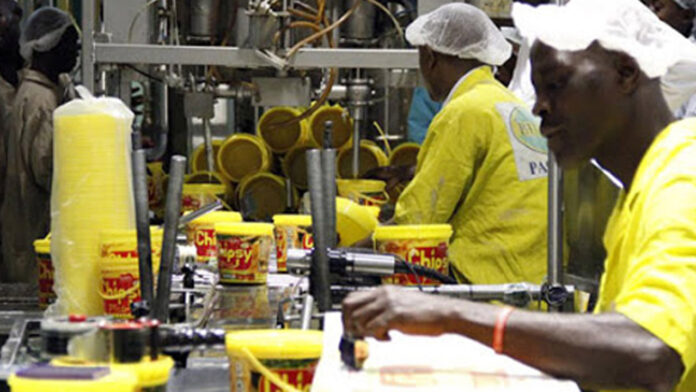Nigeria’s manufacturing sector is paying more in value-added tax than ever before, despite experiencing its weakest output levels in over a decade.
Fresh data from the National Bureau of Statistics reveals that manufacturers contributed N803.53 billion in VAT in 2024, the highest figure in five years and almost 50 percent higher than the N578.39 billion recorded in 2023. This is more than double the amount paid just two years ago.
The rapid increase occurs at a time when the valueadded output of the industry dipped to $25.4 billion, its lowest in 15 years. Even more disturbing, World Bank data shows that this constitutes a catastrophic drop of more than 50% from the $55.9 billion recorded in 2023.
Rising expenses and falling output are most caused by soaring energy prices, exchange rate volatility, costly imported raw materials, and poor infrastructure, according to analysts.
The News Chronicle understands that these obstacles have caused several local and foreign-owned manufacturers to downsize or completely close their businesses. Their VAT liabilities have increased despite the challenging economic environment, putting extra pressure on an already strained sector.
Economic analysts contend that the increase in VAT payments results from rising prices and currency devaluation rather than from industry expansion. According to Abuja-based economist Samson Simon, the disparity between increasing tax receipts and falling production indicates an unhealthy economy hampered by high taxes and weak competitiveness.
Nigeria’s economic changes over the last two years, including the naira’s almost 70 percent decline and unprecedented inflation, have made manufacturers’ problems worse. This has increased reliance on imports, slowed job creation, and stifled industrial expansion. Following the economic recession, the industry’s total contribution to GDP has also declined from 27.65 percent to 21.08 percent.
Still, some experts are still reasonably optimistic. According to FBNQuest Merchant Bank’s Analyst, some respite might come from relative stability in the naira and lower pricing pressures. But he connected the record-high VAT results to the government’s increased attempts to generate money and curb financial leakages.
Although producers still carry taxes, the discrepancy between rising VAT receipts and falling industrial production highlights the necessity of more thorough structural changes that give productivity top precedence next with revenue growth.



